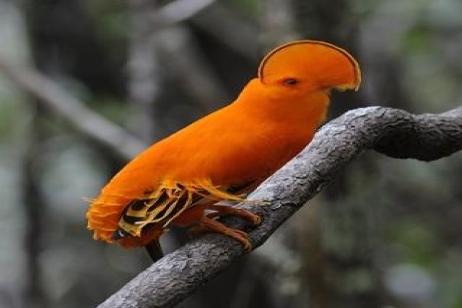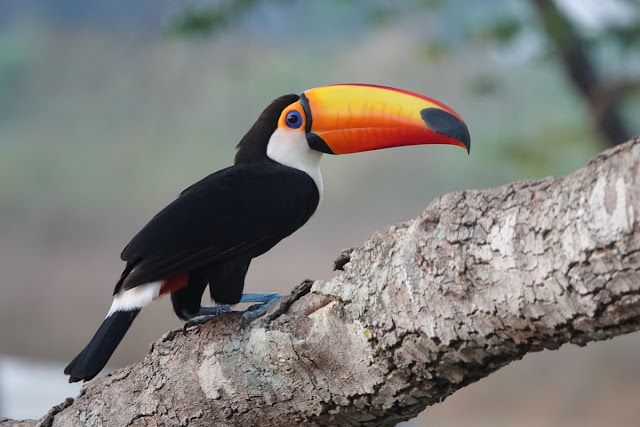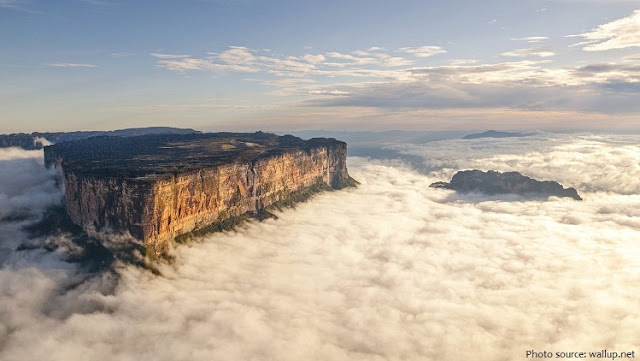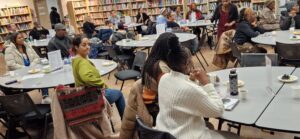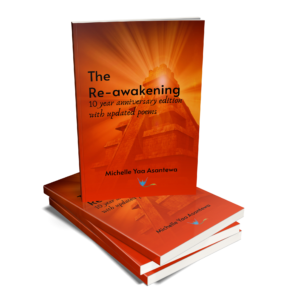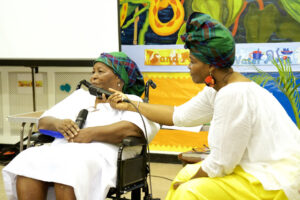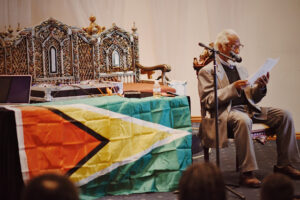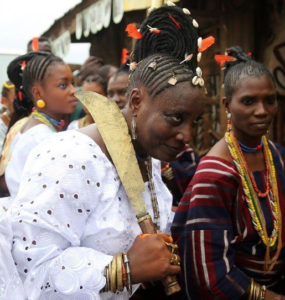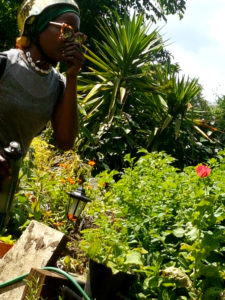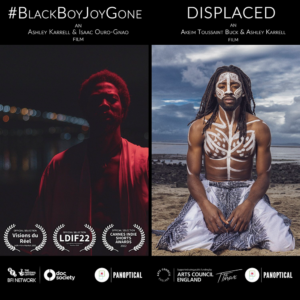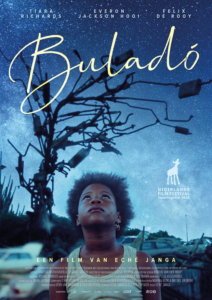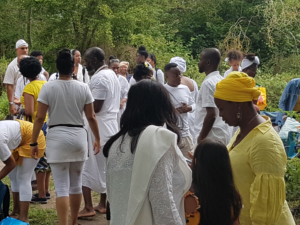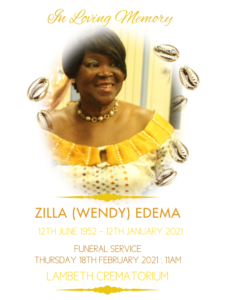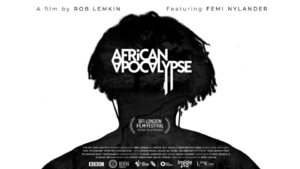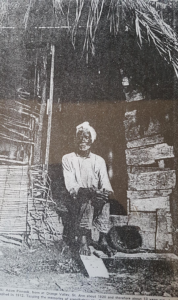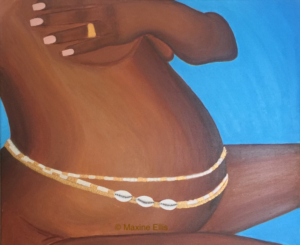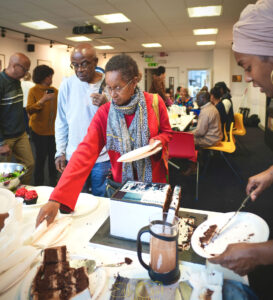
Disclaimer: Use of Copyrighted Images
The images used on this
blog and in our newsletters are sourced for educational purposes only.
These images are the property of their respective copyright holders and
are used under the principle of *fair use* to support commentary,
analysis, and discussion. We make no claim of ownership over any
copyrighted images and have taken all reasonable steps to attribute them
appropriately.
If you are the copyright owner of any image
featured here and believe it is being used improperly, please contact us
directly. We are committed to respecting intellectual property rights
and will take prompt action to resolve any concerns.
This content
is not intended for commercial use, and any reproduction or
distribution of the images without proper authorization may violate
copyright laws.
The Trouble is Silence: Notes of a Guyanese Daughter
-
 By
Dr Michelle Yaa Asantewa
By
Dr Michelle Yaa Asantewa
- 10 minutes
- Article
Share
For the past few weeks I’ve been wrestling my conscience about engaging with what’s happening in Guyana. I know I’m not alone. I have felt the kind of paralysis no writer should overindulge. This is because there is always criticism about outside ‘interferences’ by Guyanese who live in the diaspora engaging in its affairs. If we say pleasant things, it’s cool, but raise the dirty rug, call out the blights, historical or contemporary that everyone knows exist and we’re spurned as not knowing what we’re talking about, or not having a credible voice because we no longer live there. But some writers can’t be easily silenced because part of our effort is to observe, participate and contribute to a meaningful manifestation of the national consciousness, which we feel duty bound to attempt. We no longer have to reside in the nation, since history has intervened and because the ‘nation’ from whence we were sprung resides in us, come what may. The conscientious writer, I should have said, and activist too knows her role, as Albert Camus tells us ‘is to stop civilisation from destroying itself.’ At least the intent is there.
My quandary may have started when I shared a short story titled ‘Watermamma and the President of The Republic’ with a few Guyanese, many living in the diaspora and was told it would not be published (or well received) in Guyana. This because its content portrayed a fictional president as being compelled by his secretary, with whom he was having an affair, to rethink prospecting for oil as an economic venture. The actual theme about the environment was missed. Scandal (the affair), instead was isolated as controversial. The secretary (the story’s protagonist) – Cybelle – is a manifestation of watermamma whose primary concern is about the way humans preserve the environment; she judges and rewards them accordingly to the harm they do to her and her children. This central motif for the story was missed. This I feel is because any reflection on Guyana comes with the debilitating caution – whose side is the view espousing? Impartiality and objectivity have no place.
Worse, this debility is race precious as opposed to humane. Rightly, I’m not in favour of cold objectivity, but my subjectivity should not be forced upon me either. We all have agency. We all can speak and make our voices heard because there is always a wider angle from which to see things. When we’re cornered by fear we repeat the same foolishness time and again. What has been startling me is this sense that one cannot speak without being accused of betrayal when the only loyalty we should have is to justice, freedom and the will of the people en mass not to the wiles of politicians who flout the responsibility of their office often with callous disregard for the ordinary people who’ve empowered them. So now is hardly time for silence and the kind of faux-chess playing we’ve been detrimentally witnessing the last few weeks (dare I say much much longer than this). I doubt any Guyanese witnessing it now will ever get over this period in our history, just as past experiences continue to haunt the present and are the reason we are once again right here.


 I recently wrote that Guyana is ‘both my heart and its ache.’ I don’t mean this to be interpreted as pretentious nostalgia. That is always tempting, given again the intervening history and migration experiences for many of us. Truly it is impossible to disregard the place where one was born. A real malady of the heart, permissible or insidious would be the consequence of trying. I do not feel nostalgic about a once wonderful Guyana when all was utopic. Nor do I desire to will it to become the same. Having been removed when I had not yet completed Common Entrance I don’t have such a rosy image of Guyana as some of my elders will – save the affections of my grandparents and the quaint village (Seafield) living I experienced during school holidays. The rest is a complex and brief history.
I recently wrote that Guyana is ‘both my heart and its ache.’ I don’t mean this to be interpreted as pretentious nostalgia. That is always tempting, given again the intervening history and migration experiences for many of us. Truly it is impossible to disregard the place where one was born. A real malady of the heart, permissible or insidious would be the consequence of trying. I do not feel nostalgic about a once wonderful Guyana when all was utopic. Nor do I desire to will it to become the same. Having been removed when I had not yet completed Common Entrance I don’t have such a rosy image of Guyana as some of my elders will – save the affections of my grandparents and the quaint village (Seafield) living I experienced during school holidays. The rest is a complex and brief history.
Outside of that time in Berbice I lived in Linden. Bauxite mining ordered our lives, since it was the reason people like my uncle migrated there. It promised, but did not quite deliver economic prosperity for its workers. Instead it saw my uncle dead before he reached 50, leaving my aunty and a whole lot of children to fend for life without any kind of insurance and other means to feed the many mouths. Bauxite left many of us battling respiratory problems; I attribute my asthma to it, currently flared in the height of the Covid-19 pandemic (as I’m now writing this). I have not seen, but would welcome, any cost-benefit analysis about the quality of life rendered significantly better because of the bauxite industry in Guyana, and especially Linden. I would welcome too any study of the continuing ecological impact of bauxite mining on the local population. I recall the all-day round dust clogging everything, especially our lungs. Where I lived – in Silvertown, we were surrounded by grit and sand; and dirt tracks for road. All seemed accidental rather than well-organised, civil-engineering and town planning. That area hasn’t changed in 50 years. There are some flashy concrete houses but the ‘streets’ are no different; dishevelled and pot-holed; the market building still drab and depressing. All seem to be in the same posture of arrested development and retarded expectation. I know development is a long bitter process but I wonder – did Forbes Burnham, the demi-god of the region (10), after whom Linden was named, dream that this would be the amalgam of his pride? He may recently have quivered in his mausoleum at Russian company RUSAL’s attempts in February this year to stop its bauxite operations. I don’t know the ins and outs – but the eye-pass is evident – especially the easy disregard for Guyanese workers, when they could so readily try lay off 326 of them. One wonders too how they have 90% of Guyana’s bauxite. And does the meagre 10% enable real development of the local (let alone national) economy? Who has the answers and where are the figures? The scrupulous figures, I mean. The game to me (an overseas ‘Guyanese daughter’) is so fine –tuned, you see, because this occurred weeks before the election which final results (at the time I started writing this) we’re still awaiting.
The same inquiry is warranted about the hallowed new oil and gas sector. All kinds of unexacting promises, figures and potentialities are bandied about in the local and international presses about the oil production: most recently – ‘Guyana paid US$55 Million for first oil Cargo’ (Stabroek News 21st March) – subtitled – ‘royalties paid next month.’ The money is, however, being held in the National Resource Fund (NRF) that’s in the New York Federal Reserve Bank. Given that for the past 3 weeks there has been an impasse over the election, held on 2nd March, coupled with the current pandemic of Covid-19 (the Corona Virus that started in China at the end of 2019), what does this really mean? I ask this because international observers to the election have called into question the credibility of the tabulation process; and particularly region 4’s results. Consequently, the US has threatened Guyana with sanctions – a word that spells terror to any developing nation with a small , struggling economy (no matter what we’re reading about the oil) – knowing as we all do that US foreign policy makers are odorous bullies, who care only for their multi-national corporate interests. We know they are the least reputable country when it comes to equity in electoral process and world affairs generally but the world jumps when they threaten sanctions as they have done with Guyana. It’s acute for Guyana because its neighbour Venezuela is tragically staggering under such US enforced measures – not least that of destabilisation and deliberately recognising their sweet boy Juan Guaidó over Nicolás Maduro. Perhaps those who think overseas Guyanese ought to keep out of the country’s affairs might reconsider the extent of the influences such ‘outsiders’ as multi-nationals and the international community generally have and have always had in Guyana’s politics, economy and social affairs.
Here’s what US Secretary General Mike Pompeo said: “The United States is closely monitoring the tabulation of votes in Guyana ….we join the OAS Commonwealth, EU, CARICOM and other democratic partners who are calling for an accurate count. We commend CARICOM’s role in seeking a swift democratic resolution and it is important to note that the individuals who seek to benefit from electoral fraud and form illegitimate governments/regimes will be subject to a variety of serious consequences from the United States” (Stabroek News: 21.3.2020). It seems it doesn’t matter what the organisation is called, US is its bad cop mouth piece. Furthermore, Guyana has a constitution that, to my understanding, gives the overriding powers to GECOM (the Elections Commission) to declare the outcomes of the elections.
So this looming threat does not only come from the US, but those international observers that are relied upon interminably to oversee that our elections are ‘free and fair’ as there’s all are ‘free and fair’ no doubt! We’ve seen political theatrics that many of us are too mindful to say are embarrassing and belittling to the people of Guyana whose general voices throughout have been largely silenced. Except for the way each know that they voted. When violence broke out – especially by PPP supporters – those hypocritical observers were silent. Just as there is silence about that US threat that should bother all of us at a time when Guyana needs compassion. But first order business has no time for compassion. If a country is battling a pandemic amidst electoral disturbances how helpful to its people is it to be faced also with world condemnation and the terror of sanctions? Why doesn’t the US general Secretary bully China to abandon its ‘wet markets’ that are purported to be the cause of this current pandemic and previous animal to human transferred diseases? We know the answer – bullies don’t pick on anyone bigger or the same size as them. There was eerie silence when school children were attacked in the David G school buses, again by PPP supporters. It’s not the point here to argue about the sadly named buses – though I don’t know why they were not called something generic like Guyana’s national school bus so that whomever is leading the country, the buses will evidently still belong to the nation to ferry its school children. The digression is over, only to add that I feel the same about the crass renaming of the previous Timehri airport to Cheddi Jagan International. Maybe there is a bit of nostalgia, after all!
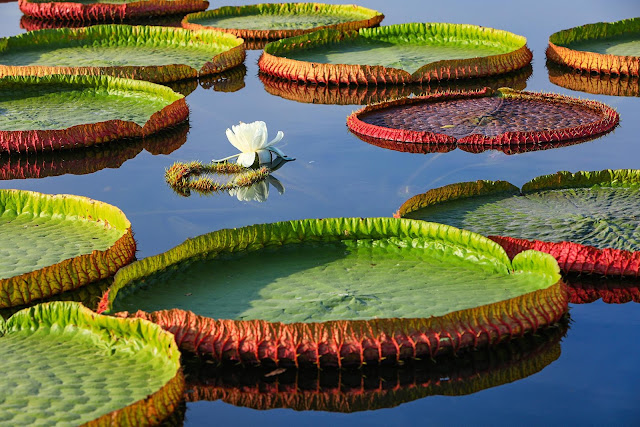
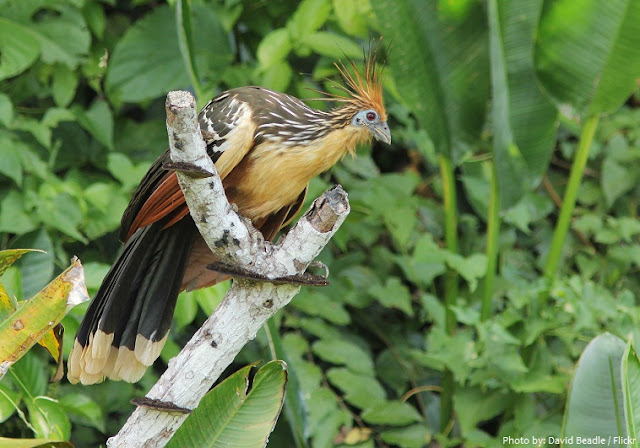
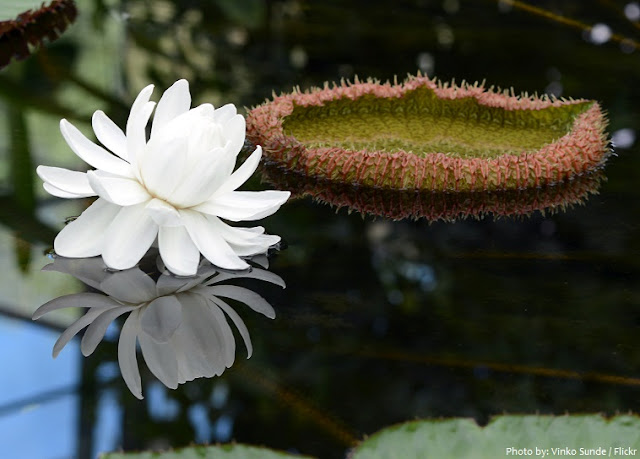
I felt compelled to write – notwithstanding the fact today is Walter Rodney’s birthday and to whom I dedicate this effort because no writer should ever be stunned into silence. I was also inspired by a young woman in tears in a WhatsApp post yesterday. She was distressed by the impasse on the elections and was colourfully cursing both party leaders in an impassioned plea for them to sort out the mess. It seemed she wanted Granger to do something more than he is, though who could say what she meant. And after all, whatever the ‘game’ GECOM has the ultimate role to play. Yet I think she was expressing the frustration of all Guyanese – say what you will – at home and abroad. The frustration and even the disruptions are not really new and I fear may be incurable. Certainly now is not the time to stay silent – especially not for writers, artists, the people on the whole – given that interferences in our history has blighted our struggles for nationhood for as long as many of us care to remember. Most fair minded Guyanese would support any conscientious call for national unity, since no one wants to invoke that bitter 1960s past – or before then. Trouble is the wounds of that past are painfully deep and too many silences (involuntary and imposed) thus far have enabled the continuing stand-offs.
I write this in the hope that whoever takes that unenviable seat as the country’s leader will use this diabolical period as an opportunity to revisit the constitution. I feel that had this been done previously there could be no room for Bharrat Jagdeo to have such a presence in the current election process. Impishly, he is at the forefront of crossfires and confusion, leading the ‘opposition’ while not a ‘presidential candidate.’ I don’t know how this is possible, but can only surmise as others do that Irfan Ali is equally corrupt. This begs the question – rather than silence – of who can legitimately become president of Guyana if those who are obviously of ill repute can to all intents and purposes ‘run’ for third terms by some kind of proxy. A silent beat is hidden in this, the history needs evoking.
I hope too that teaching of the constitution, human and civil rights would become mandatory in schools in Guyana, along with financial literacy and far reaching humanities subjects, aimed at promoting critical thinking, creativity, as well as subjects that enable better understanding of history; if history itself is not properly being taught. That is – if these are not happening already. To be and feel Guyanese is as precious and necessary as other patriots feel about their homeland. Silences that shut out truth, understanding, clarity and the wider angle through which we see ourselves do no one any good in the long term. What we bury will always come to light. We cannot afford to consider the non-resident Guyanese irrelevant, not least now when in the height of international threats of isolation we will need each other as we have always needed each other. We need also to be aware of who we really consider as ‘outsiders’ and how these forces have powerful influences and yet have no consideration for the lives and experiences of the ordinary Guyanese who comprise the body and blood of the country. Power-sharing has been suggested as a possibility for a long time. I’m not sure how this would be seriously achieved given those wounds that resurface so fiercely. It’s not so much about who has the power, but how well they handle the responsibility that it comes with; their integrity and will to remember and protect the people’s interests. This responsibility must be taken seriously if we are to evolve the country in a healthy, economical and socially productive way. Some are calling for a ‘Truth and Reconciliation’ process, as we’ve seen in places like South Africa, that they feel might help cure the deep wounds that get reopened over and over at pivotal times in Guyana. But in a land of many waters, the largest of which is muddy, and with very little that’s horizon blue, for that light of truth and awakening to take place there needs to be a lot more well-constructed and well-maintained bridges.
